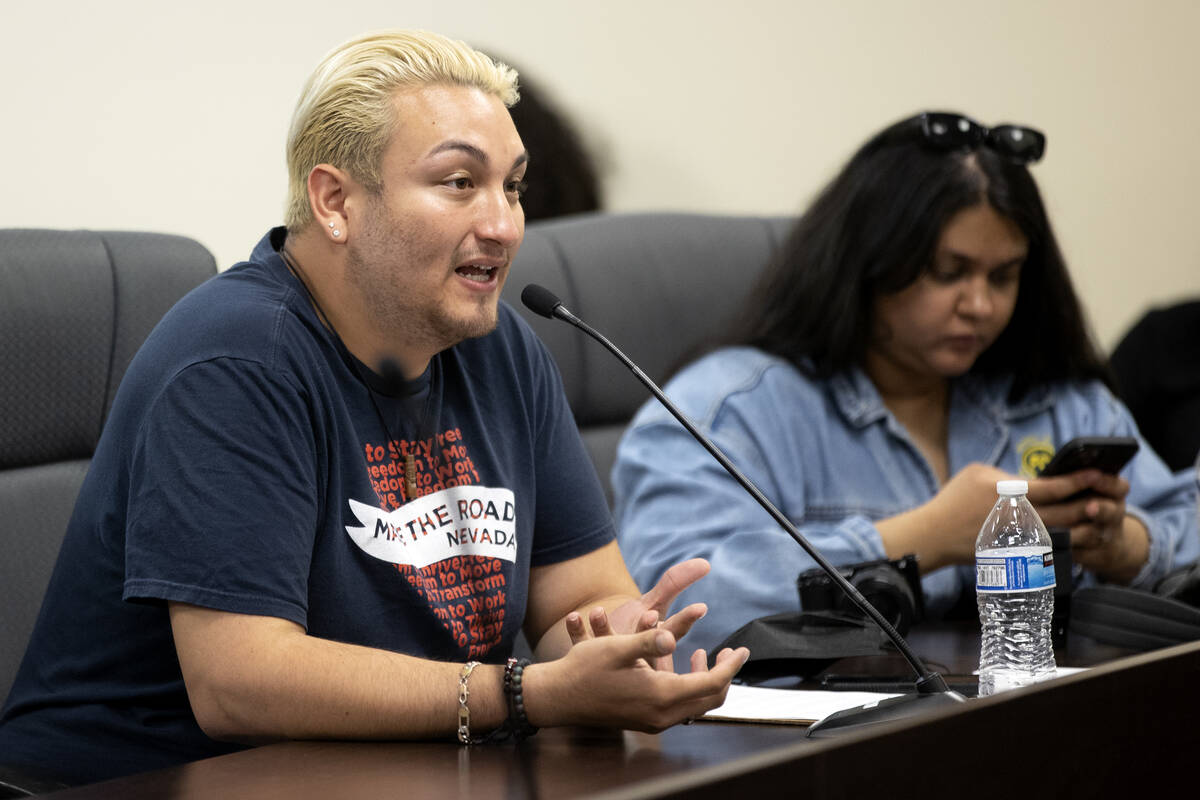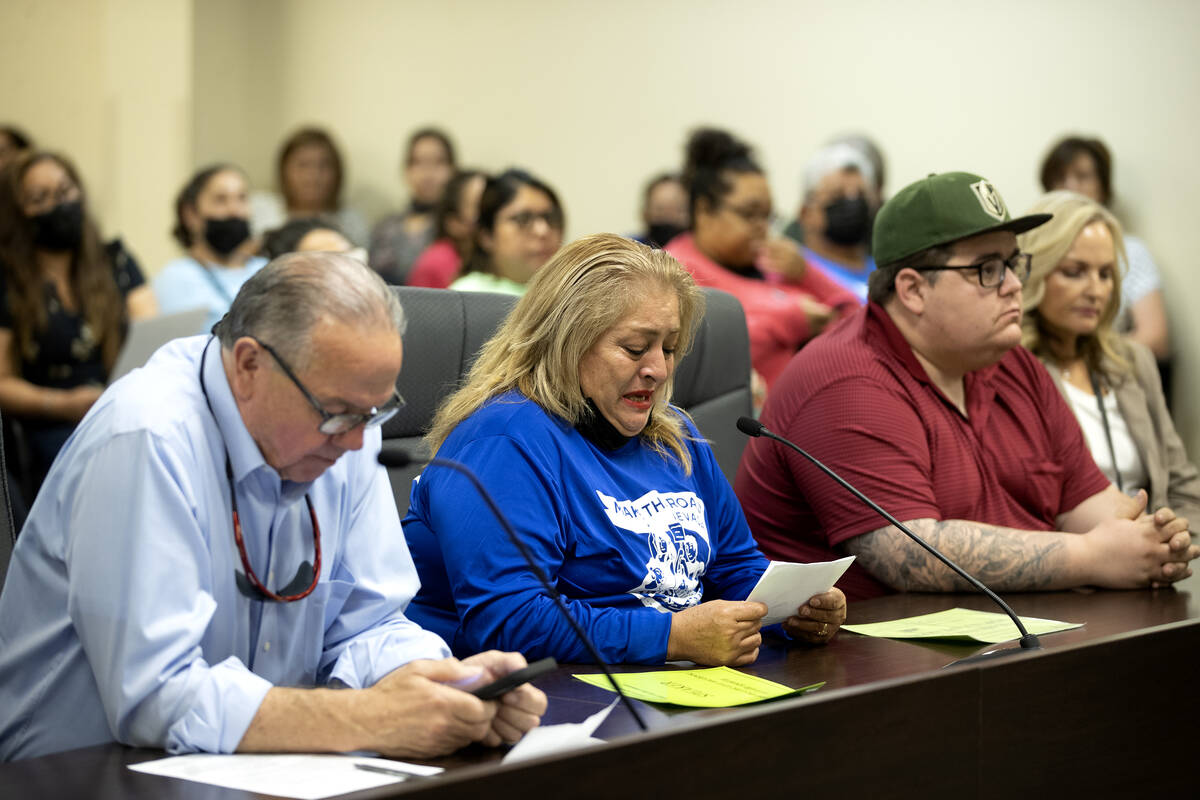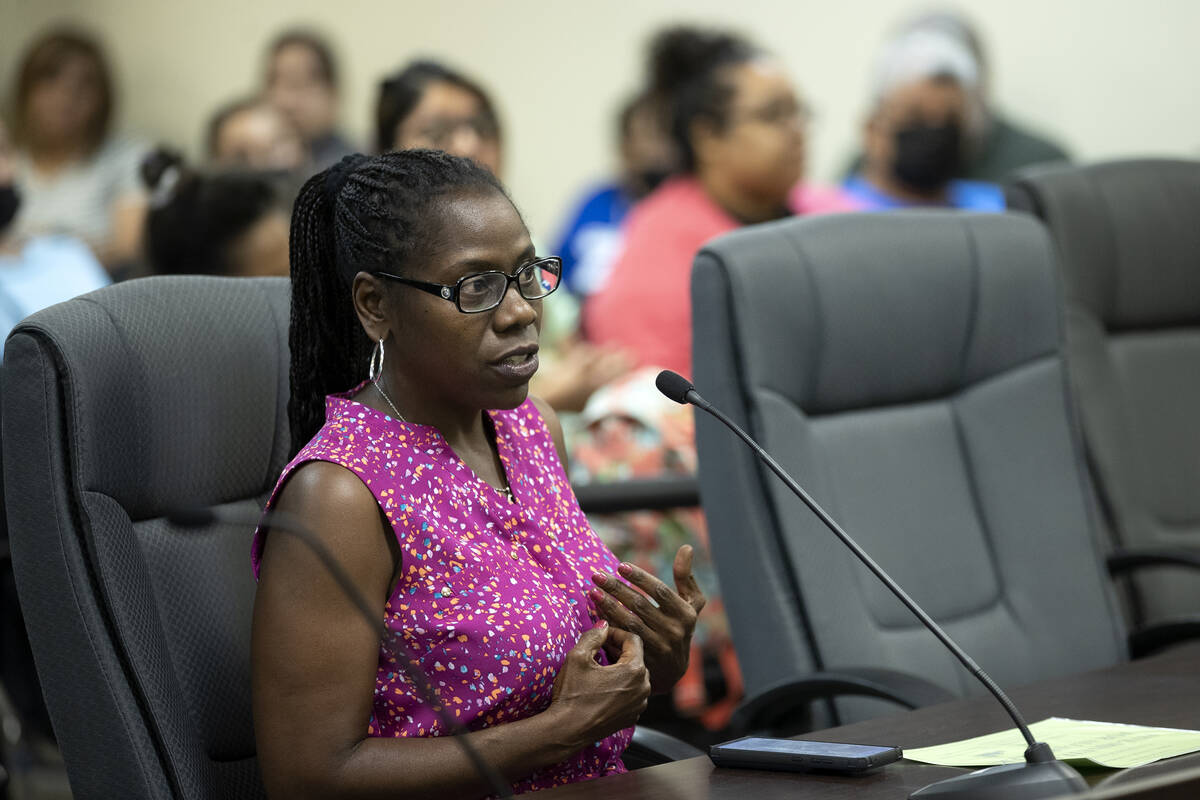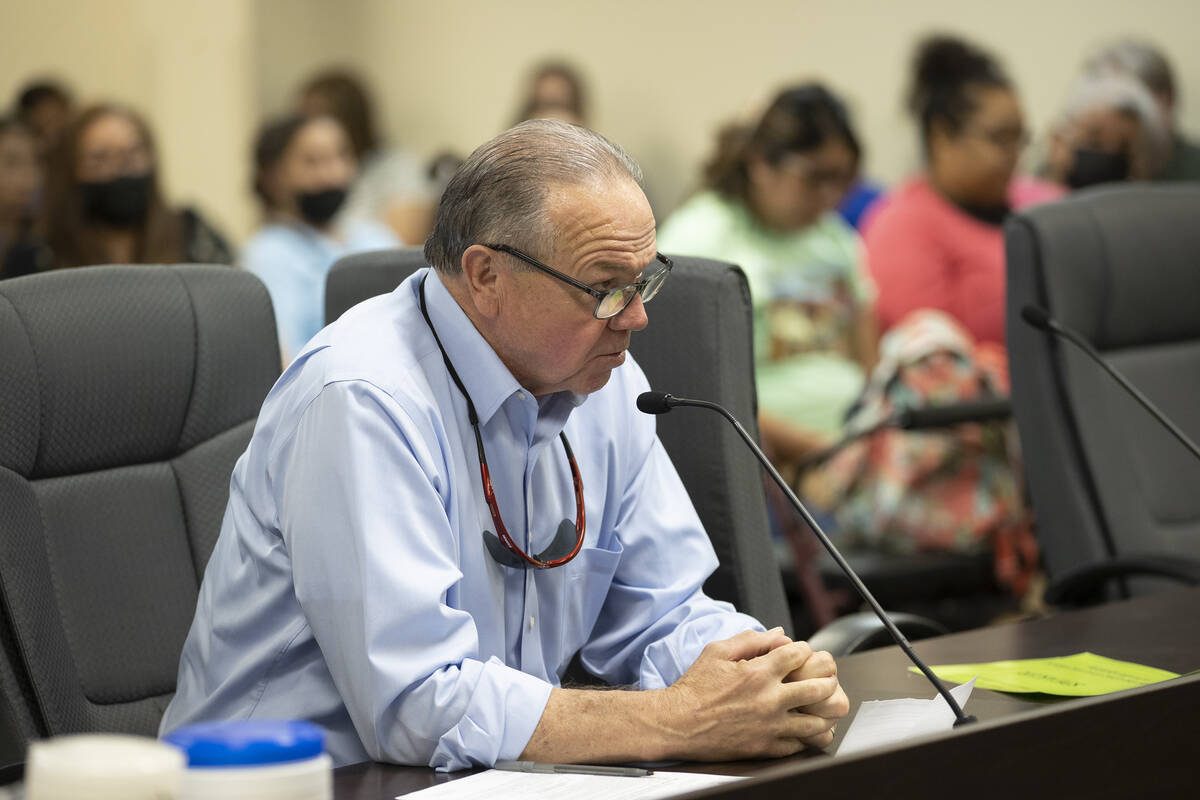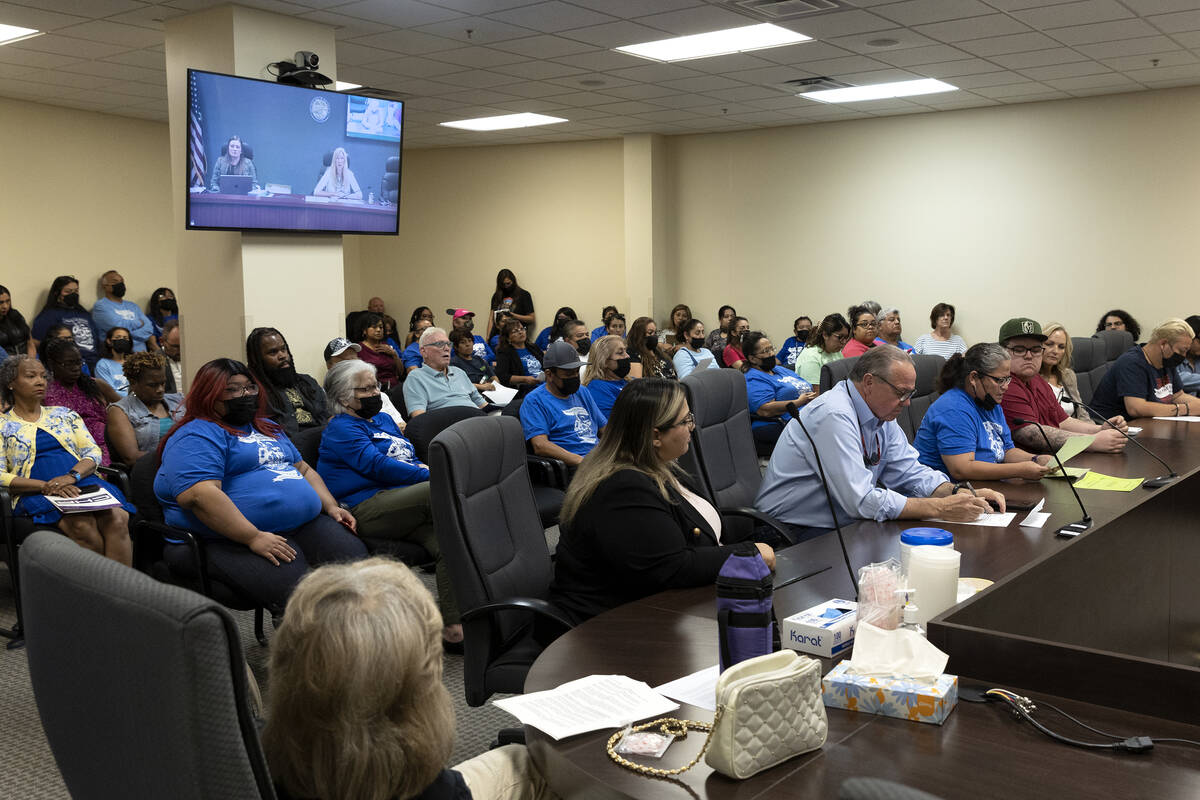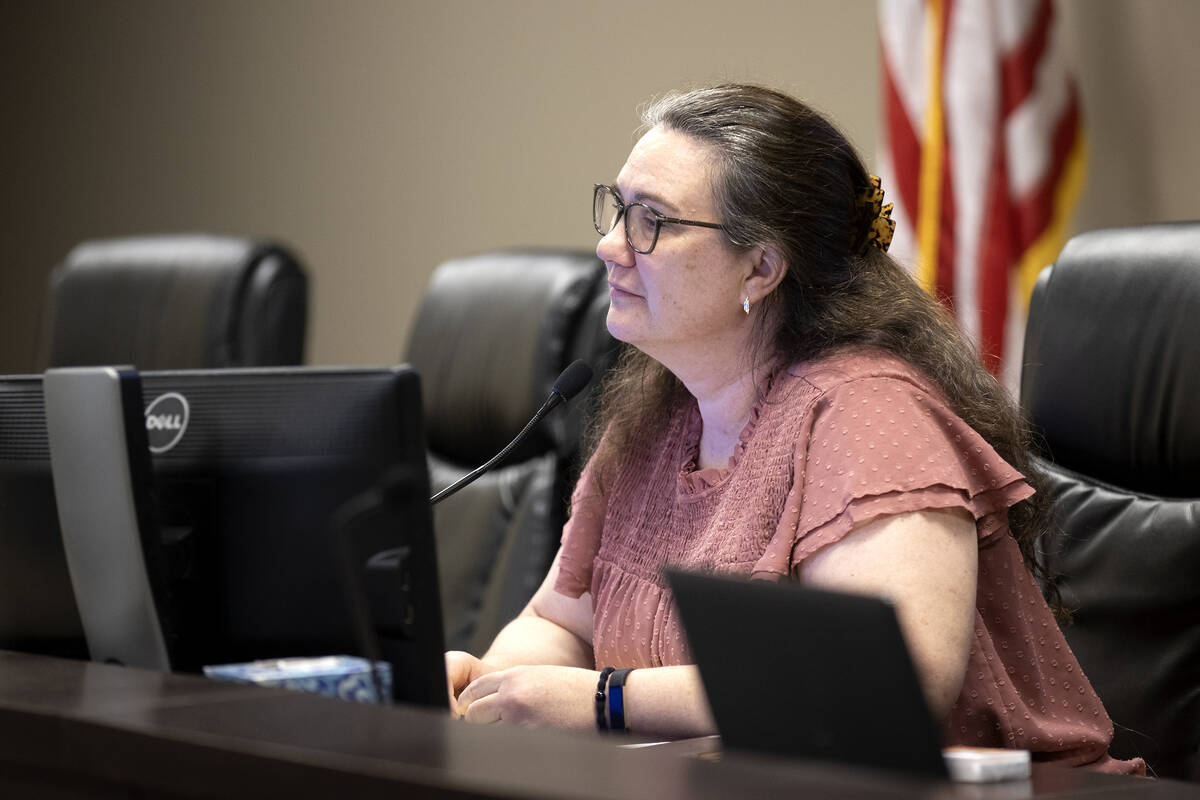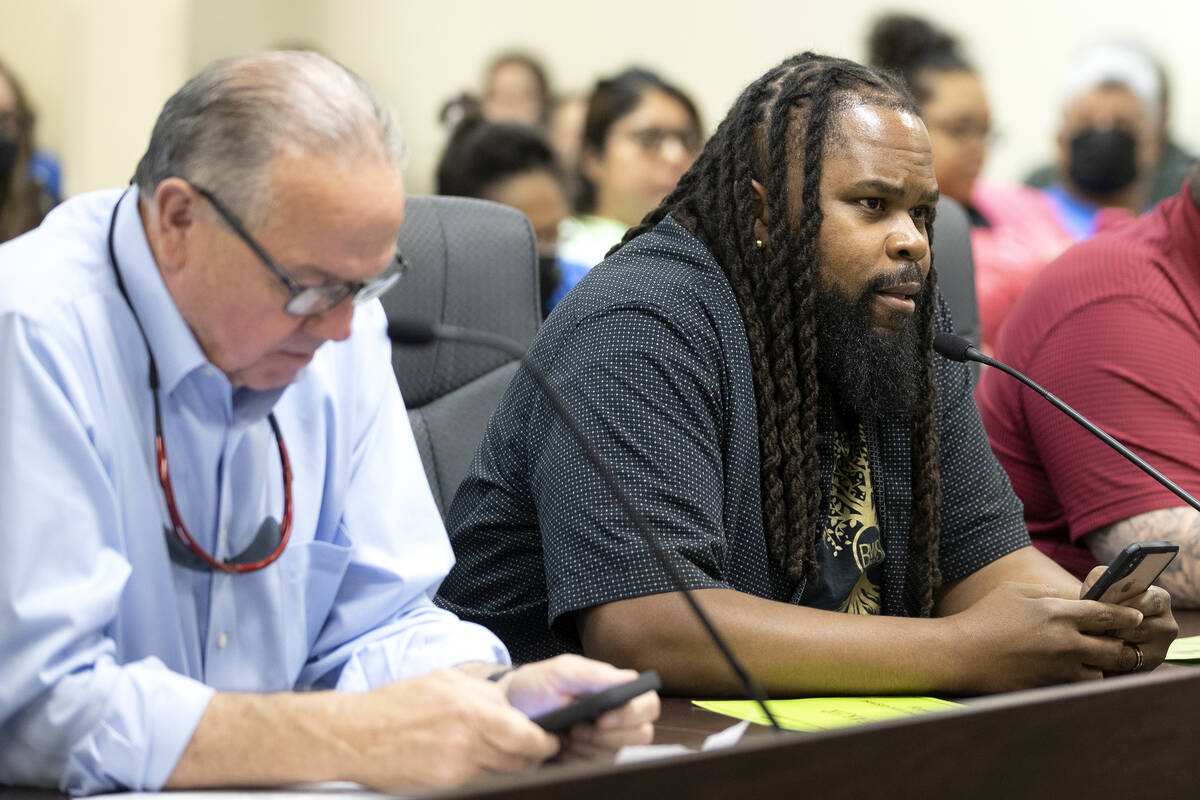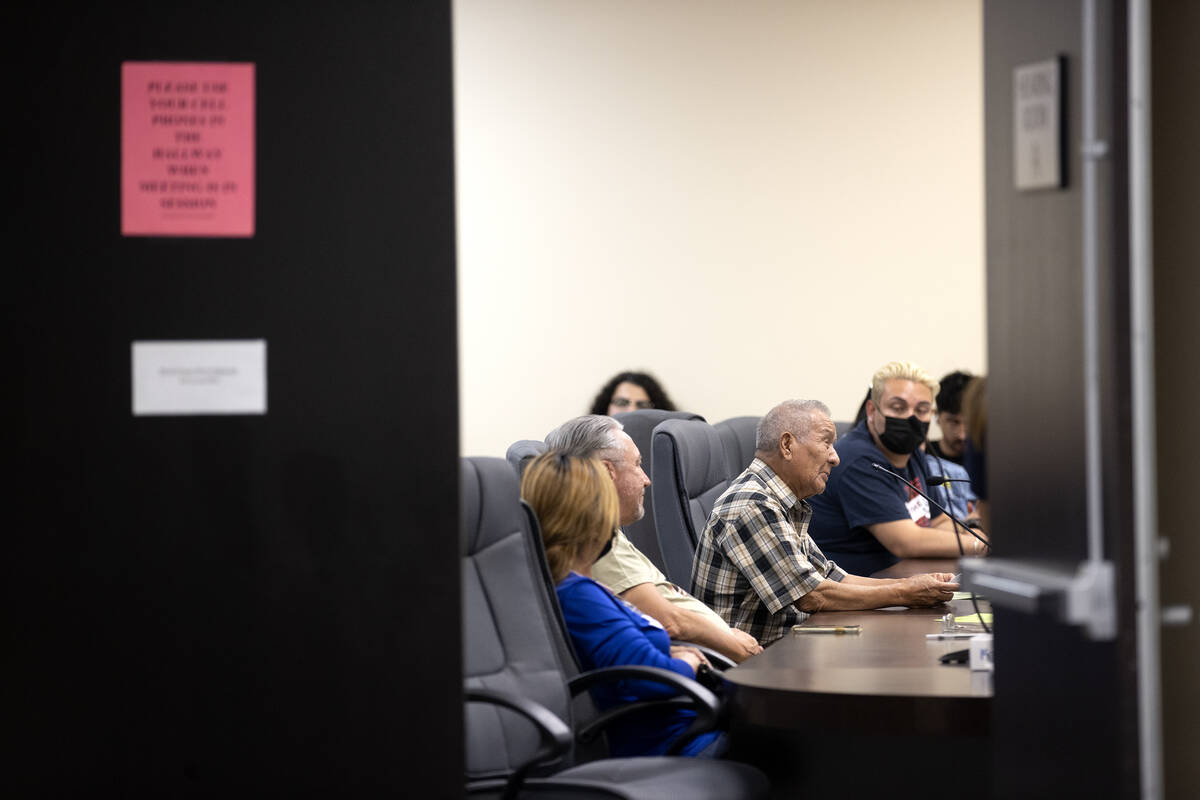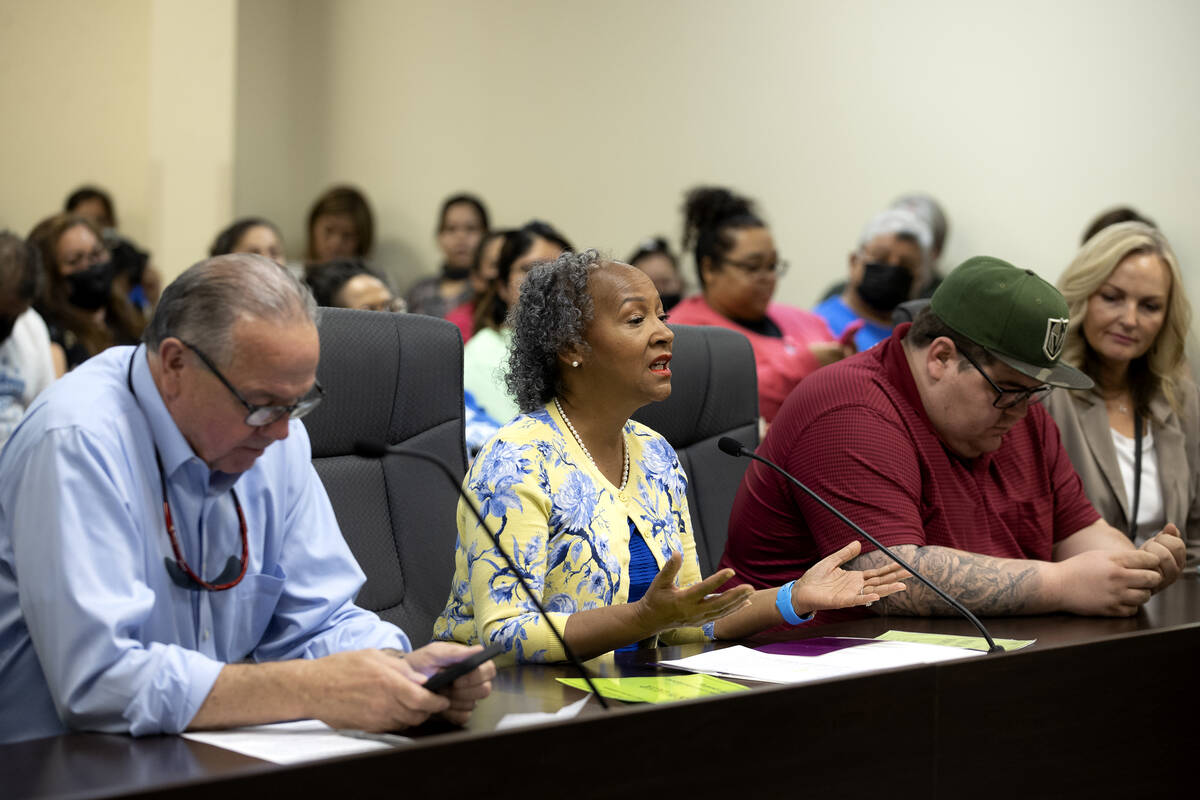‘I can’t afford them’: Nevadans voice opposition to bill increases
Residents from across the state gathered Tuesday evening to vent their frustration with high NV Energy bills.
People gathered at the Public Utilities Commission offices in Carson City and Las Vegas to voice their objections to the last year of increasing bills during a consumer session about a set of small rate changes.
The NV Energy rate changes that were considered Tuesday could result in an overall decrease in the company’s revenue by $787,000. Residential customers in Southern Nevada would see a slight decrease in their electric bills although Northern Nevada residents could see an increase.
The rate changes NV Energy, the state’s largest utility firm, is seeking to make are related to programs that involve renewable energy and energy efficiency, according to Janet Wells, the vice president of regulatory affairs for NV Energy.
But even with those goals in mind, a majority of those who spoke at the consumer session voiced opposition to NV Energy’s plans.
“The utility bills keep going up and up and become more unsustainable for low- and fixed-income households,” said Mary House, the CEO of CHR Inc., a nonprofit in Las Vegas. “We’ve gone from record high winter heating bills to anticipating skyrocketing summer cooling bills, and we just can’t keep doing this.”
Potential impacts to residential bills
If the rate changes are approved, NV Energy’s revenue from Southern Nevada would decrease by $8.3 million, or 0.26 percent.
■ Single-family residential customers in Southern Nevada could see a 0.19 percent decrease, lowering their monthly bill by 37 cents.
■ Multi-family residential customers in Southern Nevada could see a 0.30 percent decrease, lowering their monthly bill by 35 cents.
But the rate changes could increase bills in Northern Nevada. If the changes are approved, NV Energy’s revenue would increase by $7.5 million or 0.63 percent.
■ Domestic service customers in Northern Nevada could see a 0.56 percent increase, which could raise their monthly bill by 72 cents.
■ Domestic multi-family service customers in Northern Nevada could see a 0.59 percent increase, which could increase their monthly bill by 43 cents.
Consumer reaction
Many of the comments in Southern Nevada were focused on opposing any rate increases, given the consistent increase in energy bills over the last year.
NV Energy has raised its quarterly rates — which don’t need a consumer session — for the past five quarters, due to increased costs of acquiring natural gas. The utility has asked the PUC to approve a rate decrease for the summer months, but that request is still pending.
“I have a limited income myself, so any of these rate hikes … I can’t afford them,” said Las Vegas resident Indi Kaufman. “I’m sure the people in Northern Nevada feel the same way.”
Other customers weren’t impressed with the small decrease in the rate proposal.
“Peanuts in the scheme of things,” said Angel DeFazio in Las Vegas. “From July to September we have heavier residential usage, it is just shifting numbers, nothing else.”
Vangela Marquez in Las Vegas said she opposed more rate increases. Past increases in her electric bill have made one of her daughters, who just graduated high school, think about not going to college in order to help with utility bills.
“She should be thinking about college activities, when she is going to move into her dorm,” Marquez said. “Instead, she’s worried about ‘Is my mom going to make it? Should I really go to college? Or should I just stay here and get a job?’”
Economic hardships
These aren’t the only rate changes being sought by NV Energy.
In a separate general rate case filing, the company has requested to raise all electric rates in Southern Nevada by an average of 3.3 percent starting in 2024.
Several community groups came out in strong opposition to the rate changes, including Make The Road Nevada, a nonprofit that advocates for immigrant communities, and Chispa, which is part of the League of Conservation Voters that advocates for healthier environments in Hispanic communities.
Both groups brought several speakers who shared details of economic hardships faced as a result of electric bills.
“Being here is so important to use our voices to tell NV Energy not to raise these prices because we can’t keep living with a raised cost of living,” Robert Garcia, the economic justice organizer for Make the Road Nevada, told the Review-Journal.
Many groups, including the Sierra Club and the Nevada Conservation League, urged the commission to reject any rate increases for NV Energy while the company still relies on natural gas to power itself, as natural gas has volatile prices and is a polluting energy source.
But the voices weren’t unanimously opposed to NV Energy’s plan. Several representatives of labor groups, including the International Brotherhood of Electrical Workers and the National Electrical Contractors Association, supported the utility’s plan as being a balanced approach to the state’s energy needs.
“We feel that NV Energy has not just the right balance of a plan going forward,” said Ronnie Young, director of government affairs for IBEW Local 357, “but there’s protections that are going to be put in place by closing an open position, protecting Nevadans from price gouging from out of state energy companies.”
The commission plans to gather more information on the rate request moving forward. Rates could go into effect by Oct. 1.
Contact Sean Hemmersmeier at shemmersmeier@reviewjournal.com. Follow @seanhemmers34 on Twitter. Staff writer Jimmy Romo contributed to this report.



